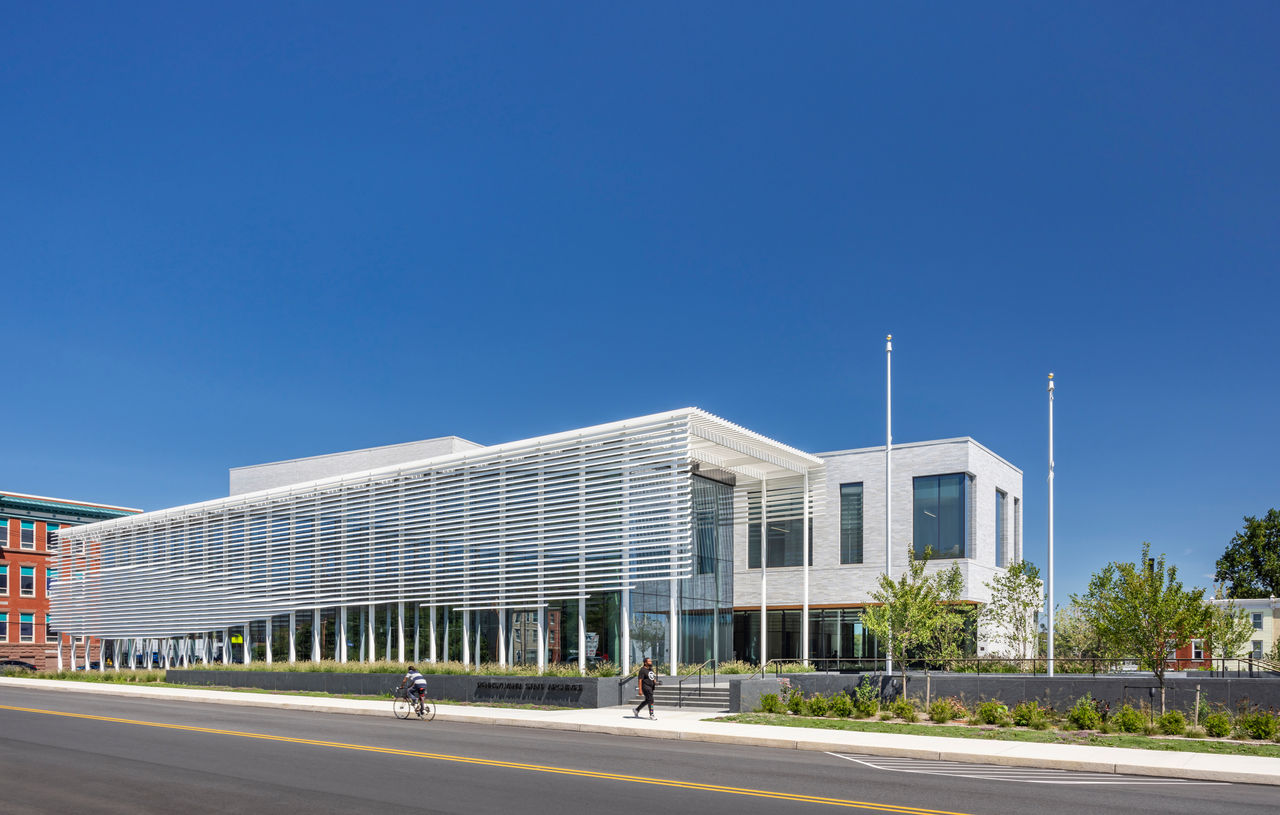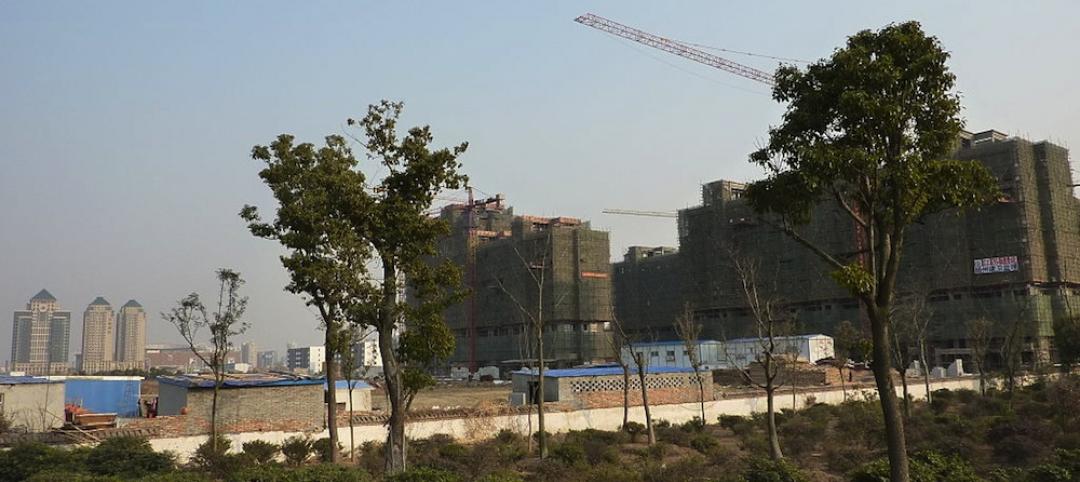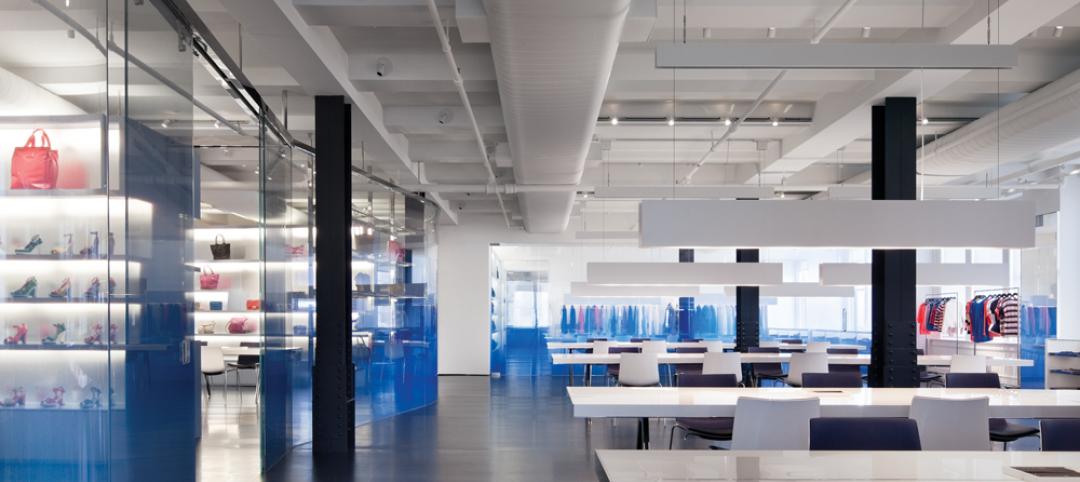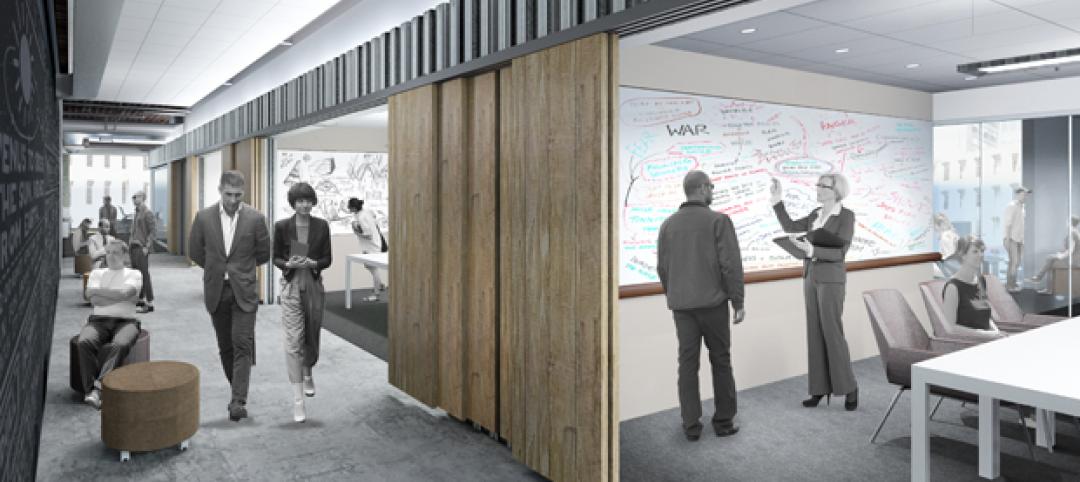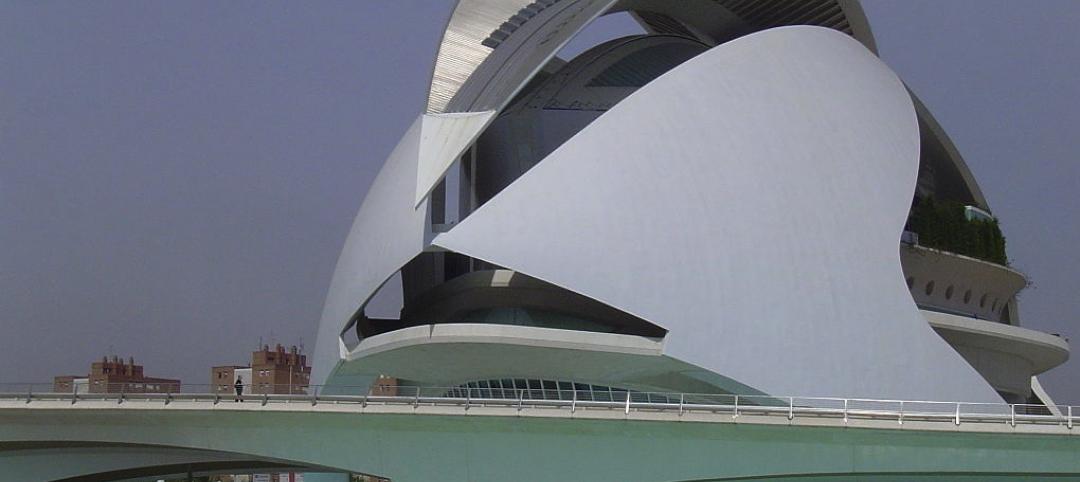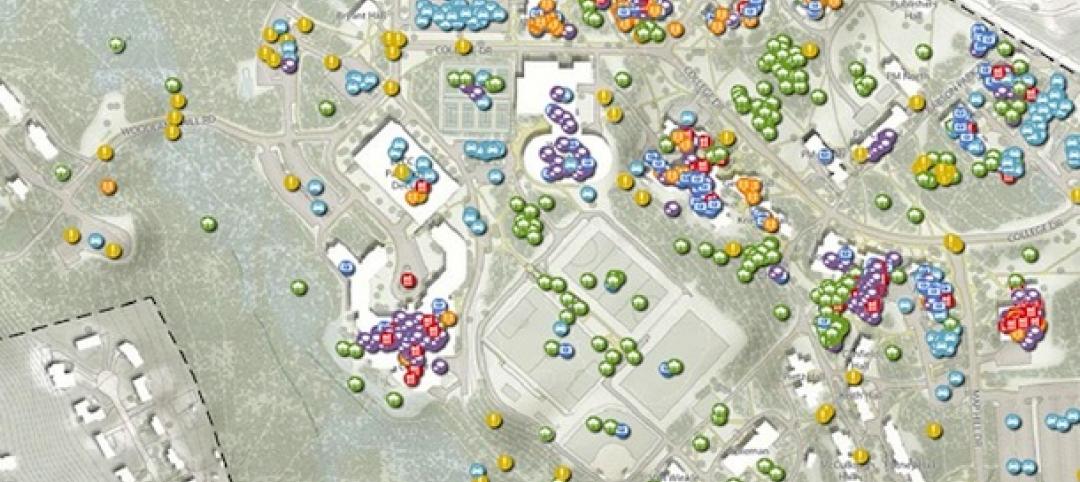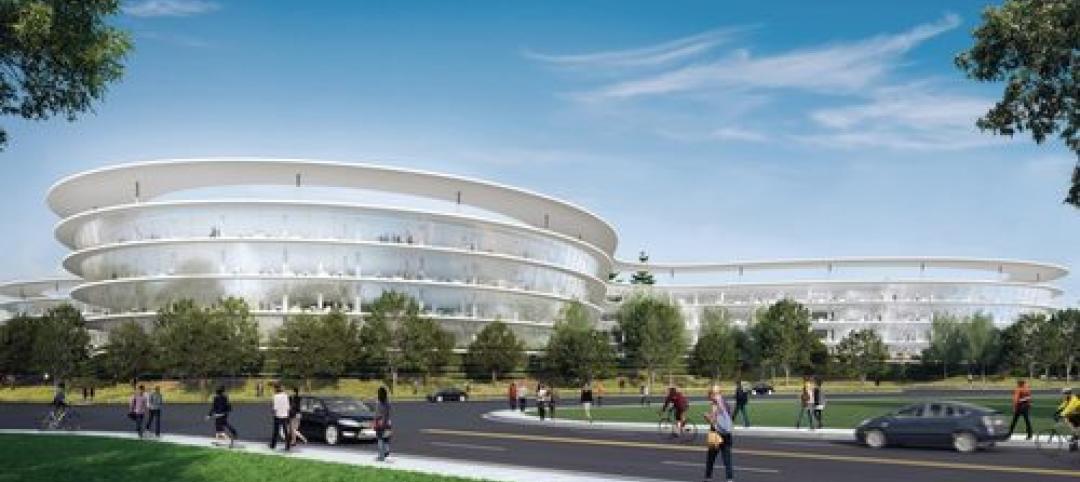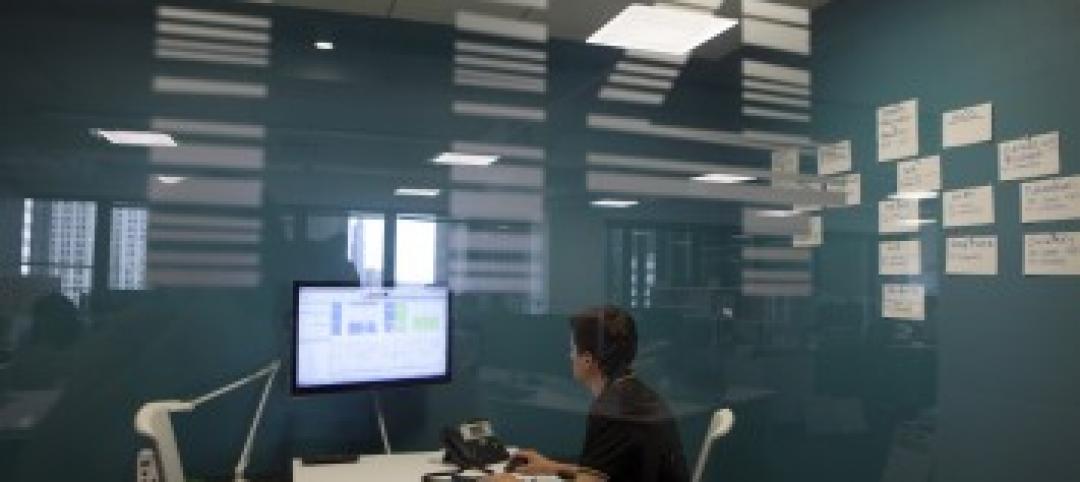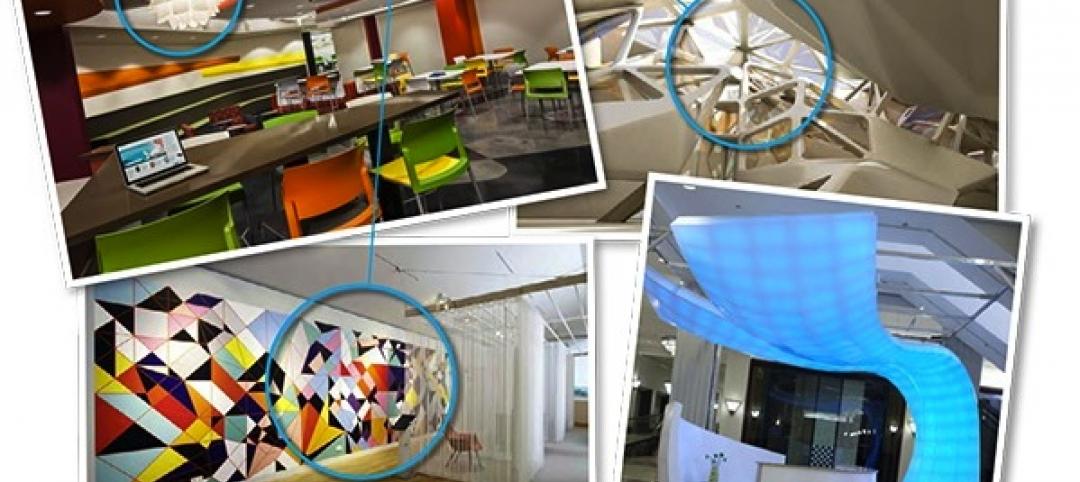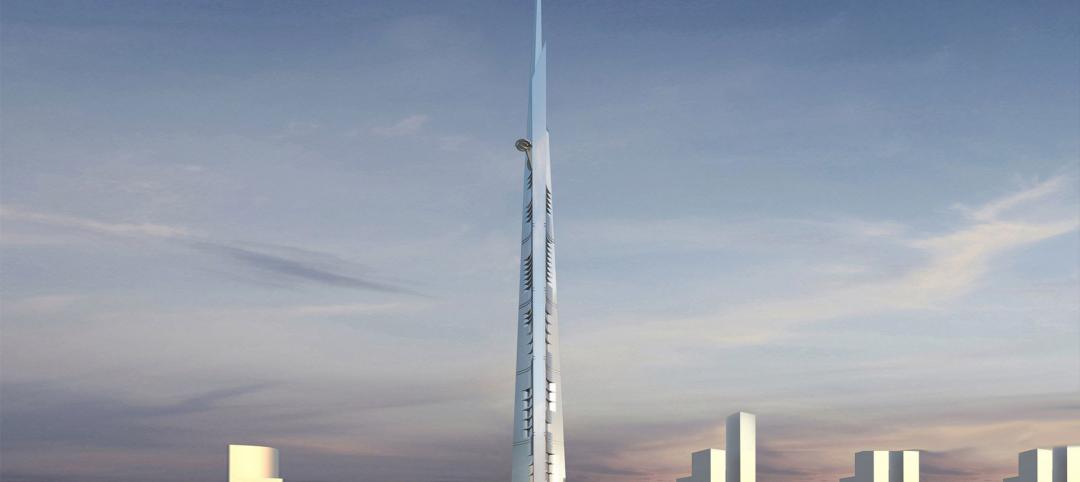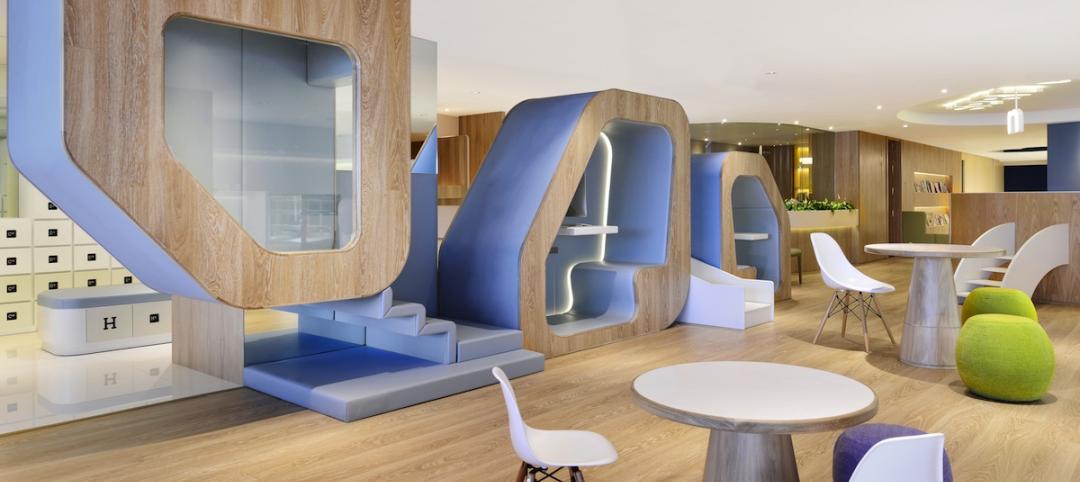Work was recently completed on a new Pennsylvania State Archives building in Harrisburg, Penn. The HGA-designed, 146,000-sf facility offers numerous amenities, including computers, scanners, printers, a kitchenette with seating, lockers, a meeting room, a classroom, an interactive video wall, gallery, and all-gender restrooms. The features are all intended to provide a welcoming and comfortable environment for visitors.
The state’s Division of Public Records was created in 1903. It became recognized as its own bureau upon joining the Pennsylvania Historical and Museum Commission (PHMC) in 1945. By 2000, its first permanent home in the Capitol Complex was reaching capacity and its low floor-to-floor height, together with a small floor plate, affected operational efficiency and would not allow for necessary environmental upgrades.
The goal was to find a site close to the Capitol Complex, and an urban parcel in a neglected neighborhood was selected. Built amid the few remaining rental row houses, light commercial structures, and the city’s rail yards, the facility is intended to have a positive impact on the neighborhood and city.
The building’s features include:
Collections space: A glazed-brick volume and high-thermal-mass concrete structure forms the body of the building, housing acid-free boxes and flat-file maps on high density shelving. The rectangular volume is windowless, well insulated, and projective. Total storage on three floors is 47,000 sf with space for growth, and 12-foot-tall high-density shelving makes the collections rooms highly efficient. Archives’ storage rooms are tightly controlled to keep out all daylight
Mechanical systems: A metal-clad mechanical bay links efficient HVAC systems to archive rooms on each floor, providing tightly modulated temperature and humidity to each kind of environment and material—paper, print photography, or film.
Public space: A double-height glass and aluminum pavilion set in a public garden with native plants allows for individual and group research with a sense of openness and accessibility.
The facility was designed to provide a climate resilient, durable, 50-to 100-year space to protect the archives while enduring extreme conditions. Areas of concern included railroad accidents, extreme or intense precipitation, theft, pests, moisture/mold growth, extreme wind, excessive snow load, and power failure.
To address the railroad yard disaster concern, a sensor was specified for the mechanical louvers that would shut down air intake if any harmful chemicals at elevated concentrations are detected. To mitigate extreme precipitation, no roof drains or roof penetrations are located over the archive rooms. Rain landing on the low slope roof runs down to roof drains over the mechanical rooms.
To prevent theft, security from the facility includes cameras and restricted access to the original documents room where staff members monitor visitors’ movements. Staff entry and exit paths with security systems are choreographed as well, for additional security.
HGA negotiated with electric utility Pennsylvania Power and Light to get two points of electricity service, one primary and one backup, each arriving from a different buried feeder line path to the site. In addition, the facility includes a standby generator with 48 hours of fuel capacity.
Ash wood was used for all interior building woodwork. Now disappearing across the country due to the Emerald Ash Borer, the wood wall panels will one day illustrate the beauty of the once-common native tree. Additionally, the site’s original granite street curbs were used as planter curbs and boulders found buried there were used as landscaping features in the public garden. The stone for the exterior pavers, interior floors, and the front desk was quarried in the Appalachian Mountains, and the glazed brick was manufactured in Pennsylvania.
On the project team:
Owner and/or developer: Commonwealth of Pennsylvania
Design architect: HGA and Vitetta
MEP engineer: HGA
Structural engineer: HGA
General contractor/construction manager: Mascaro Construction
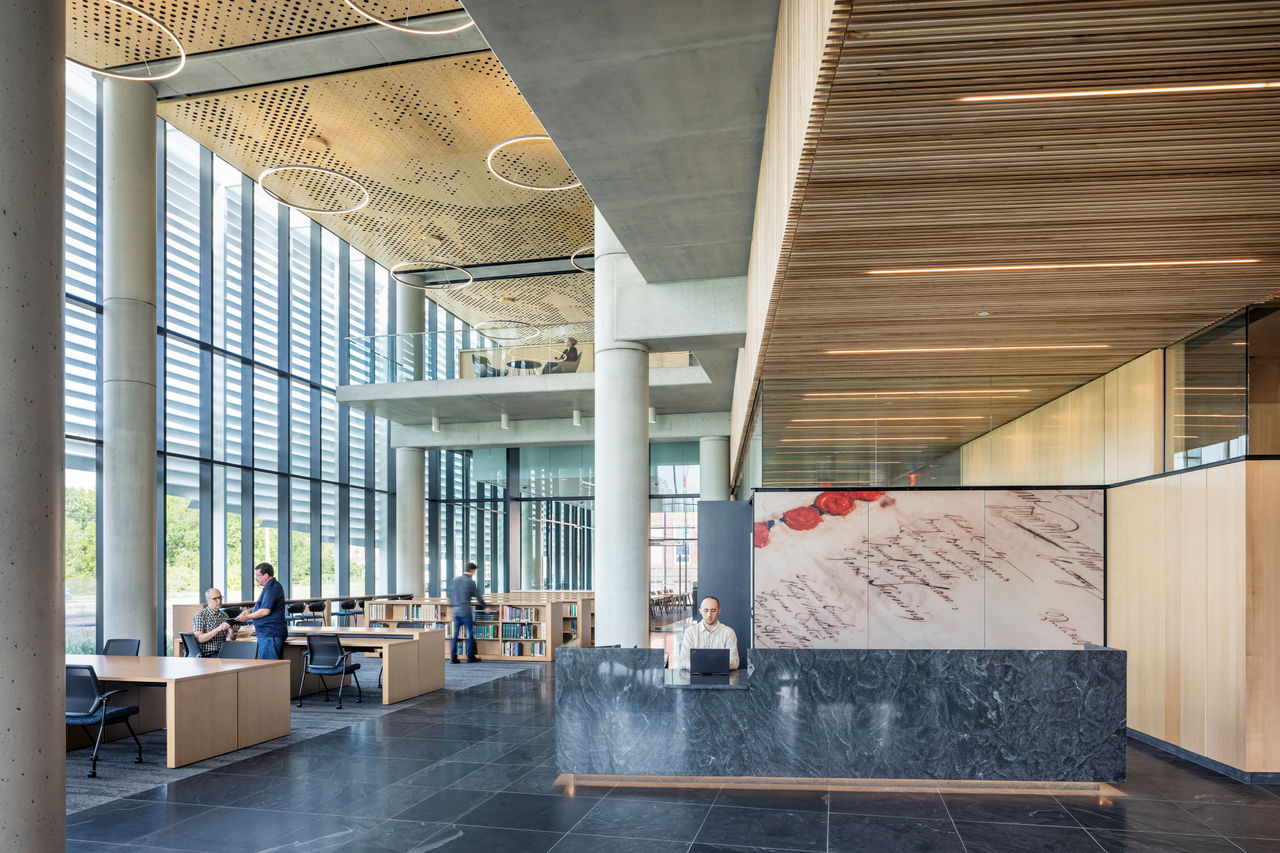
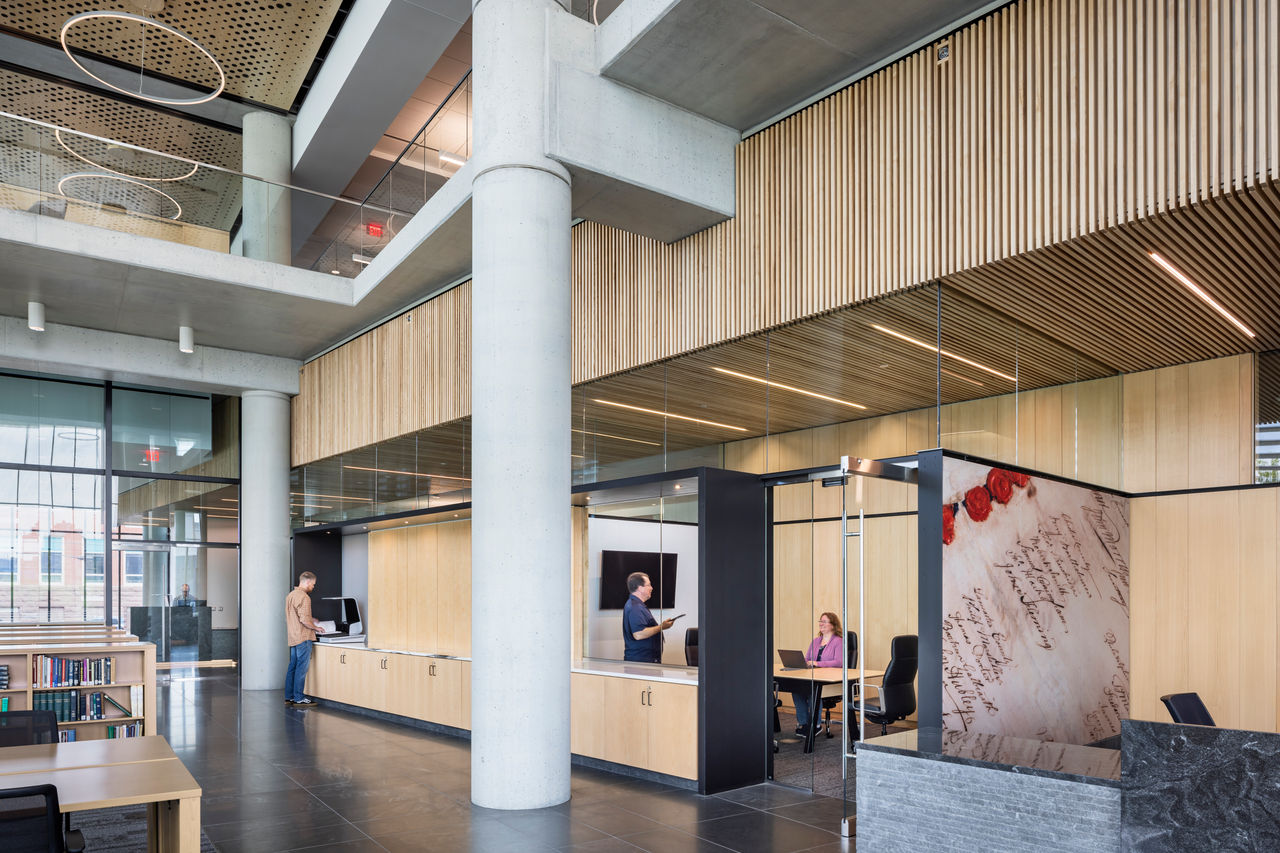
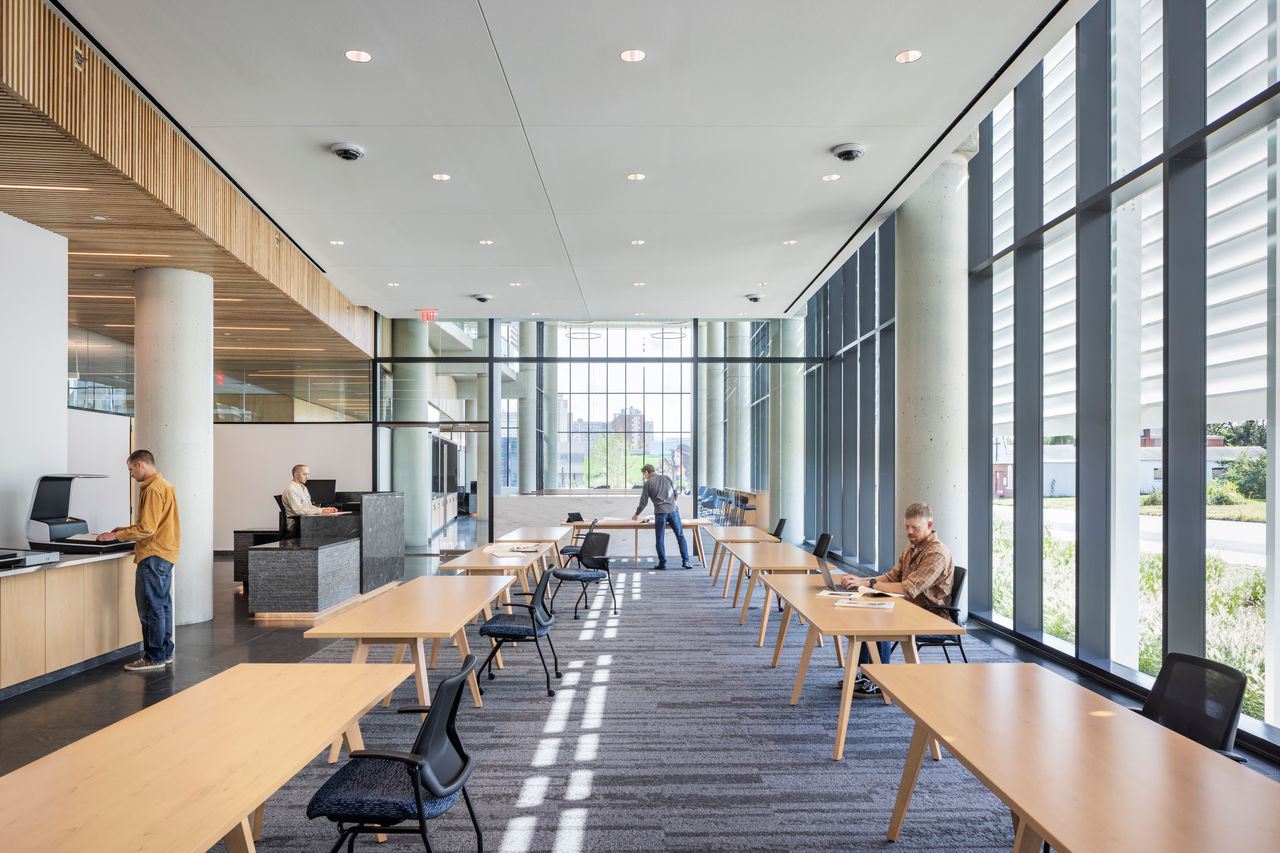
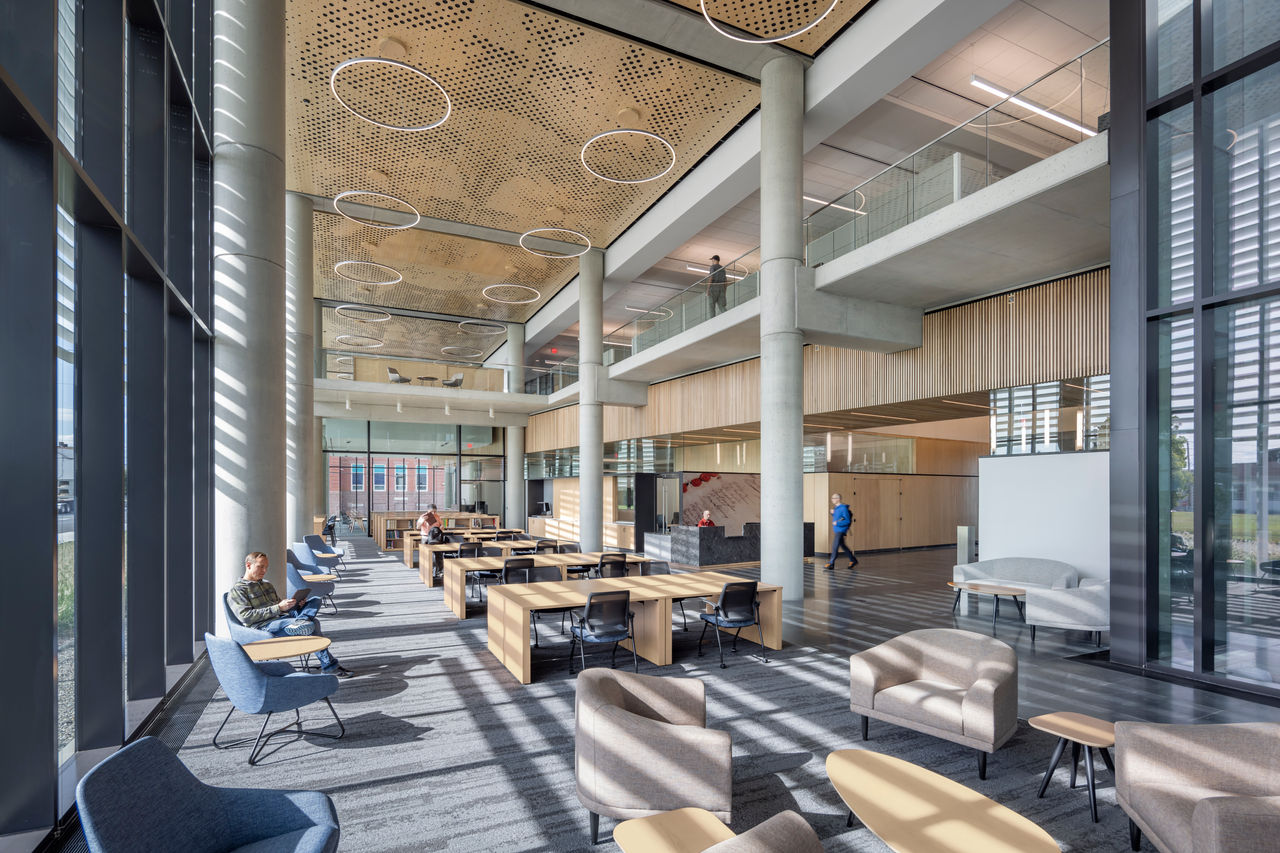
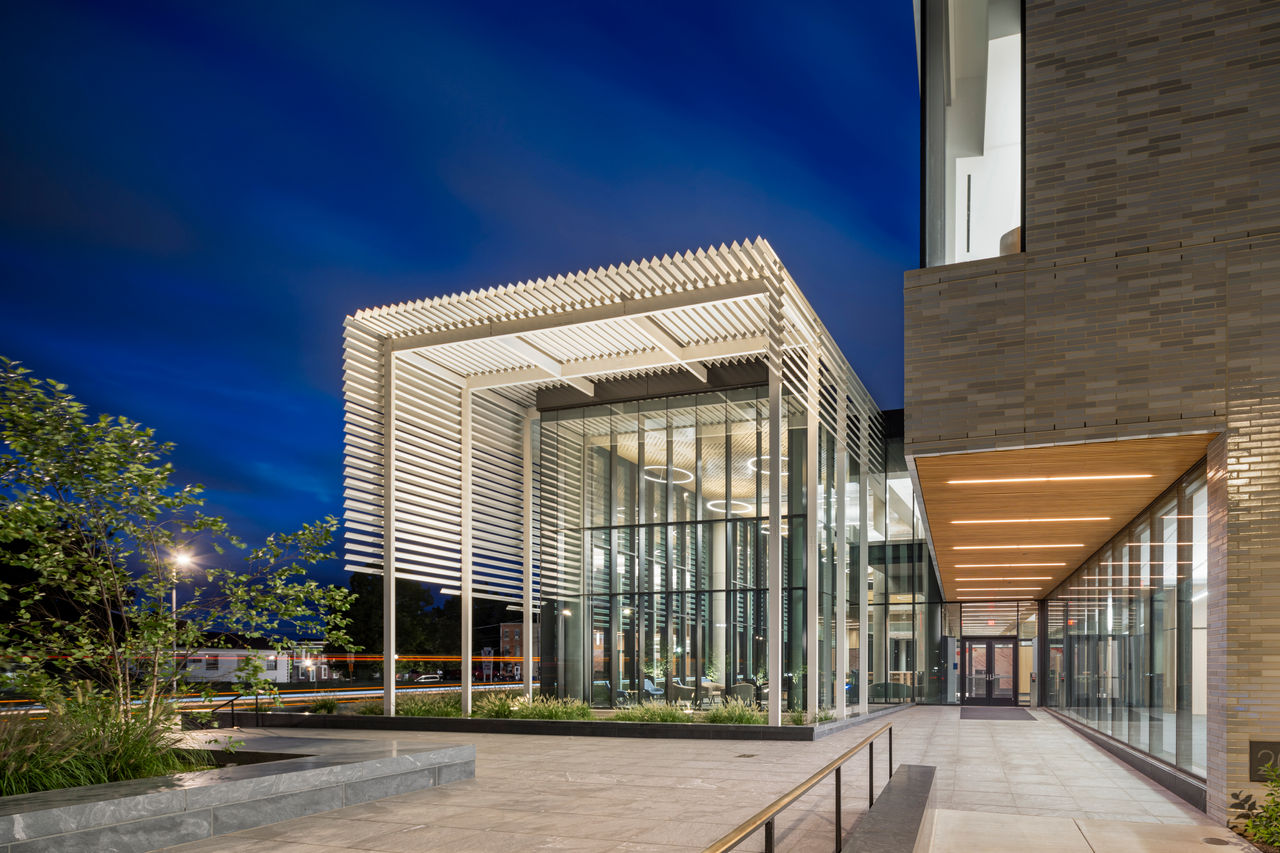
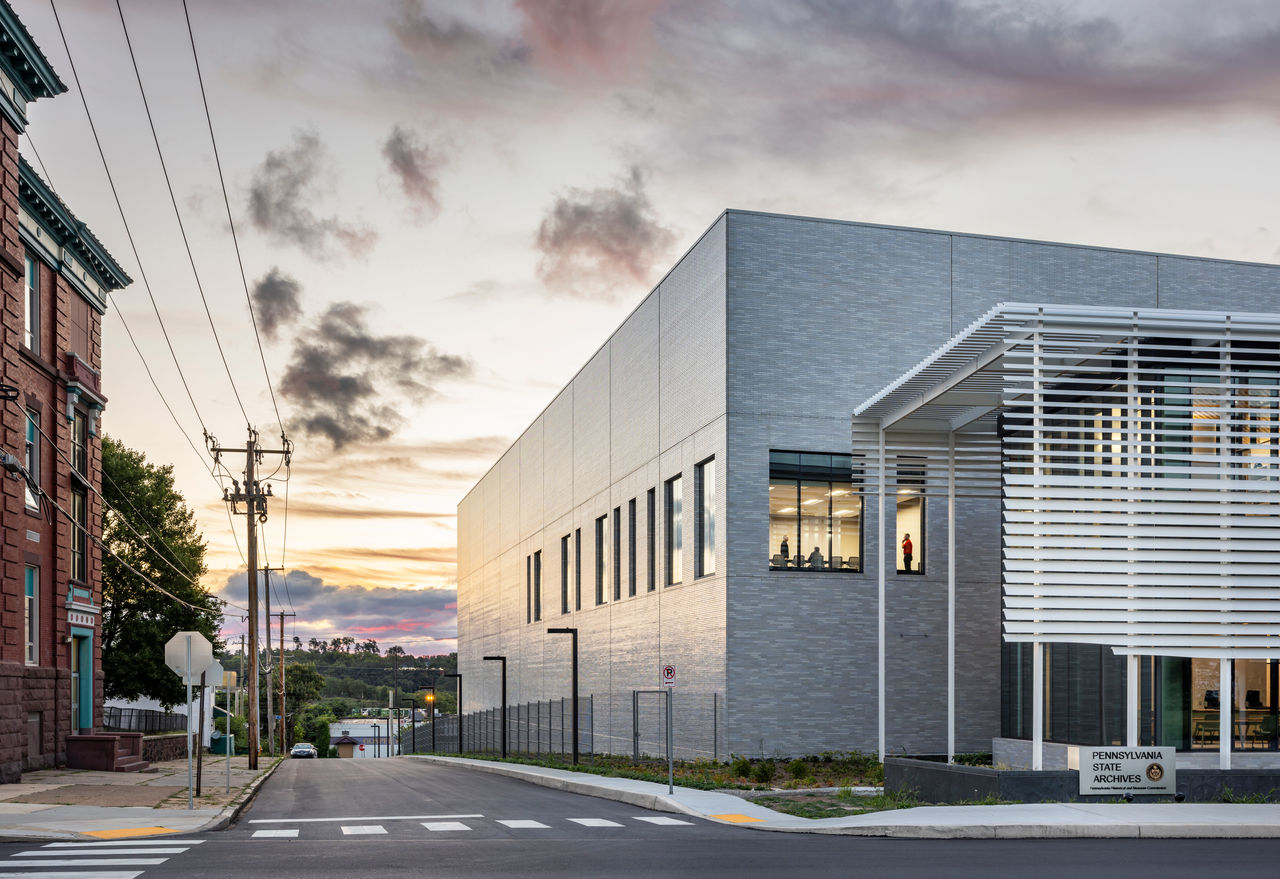
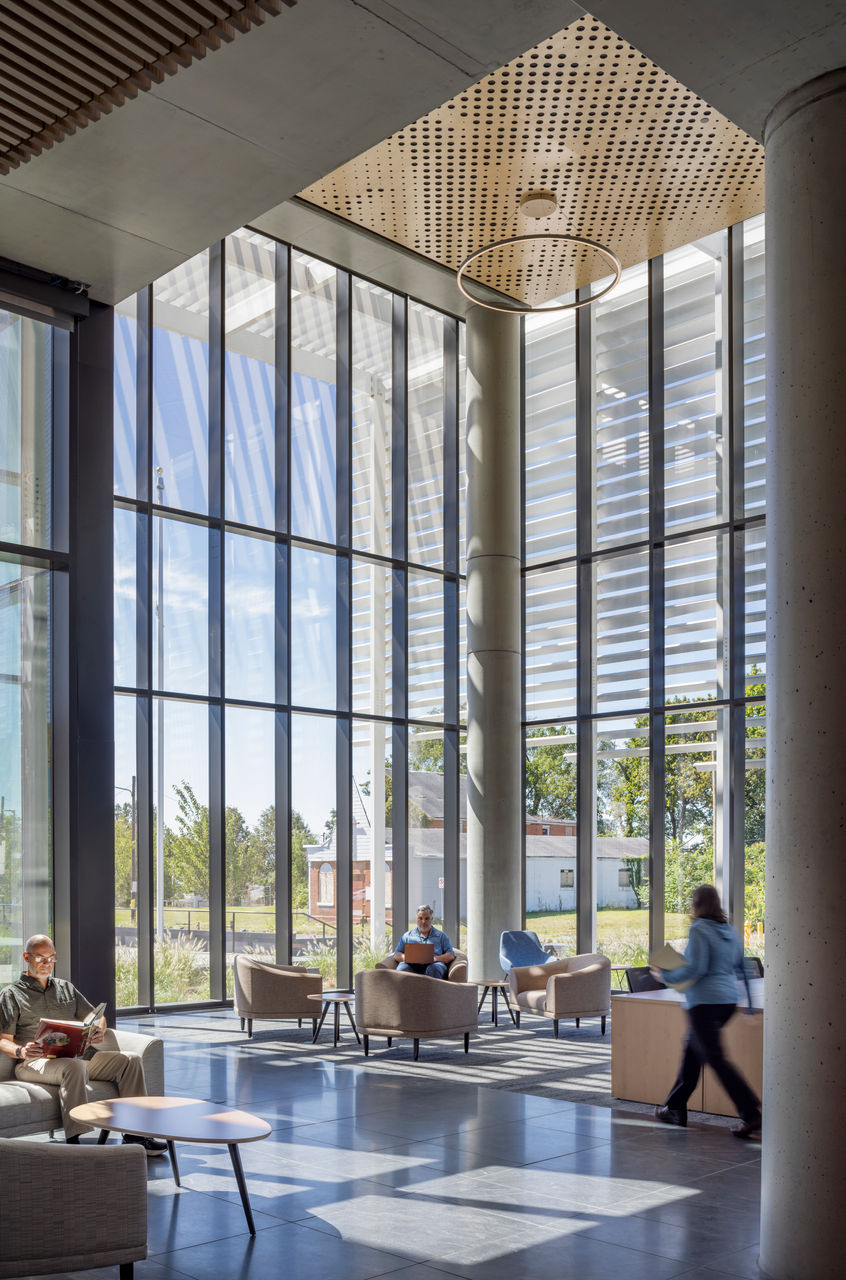
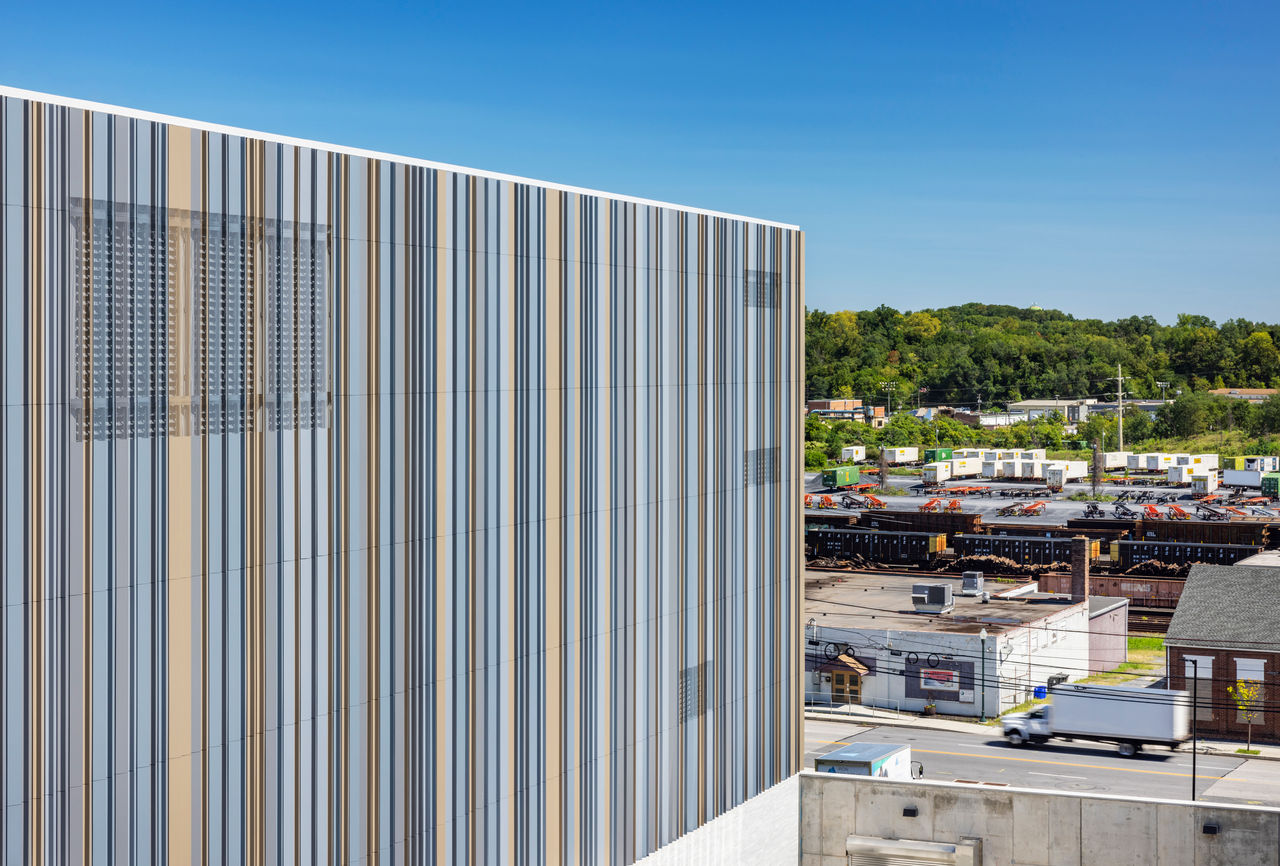
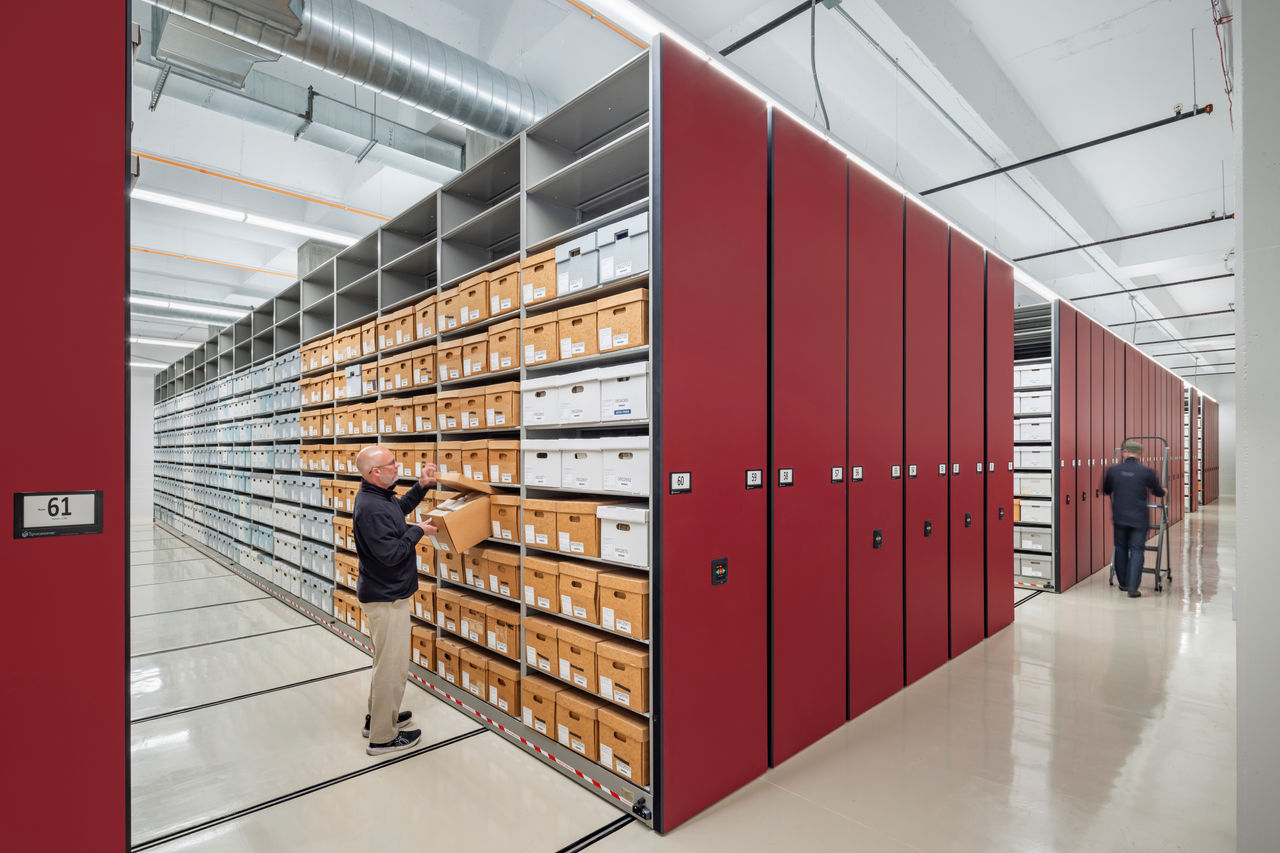
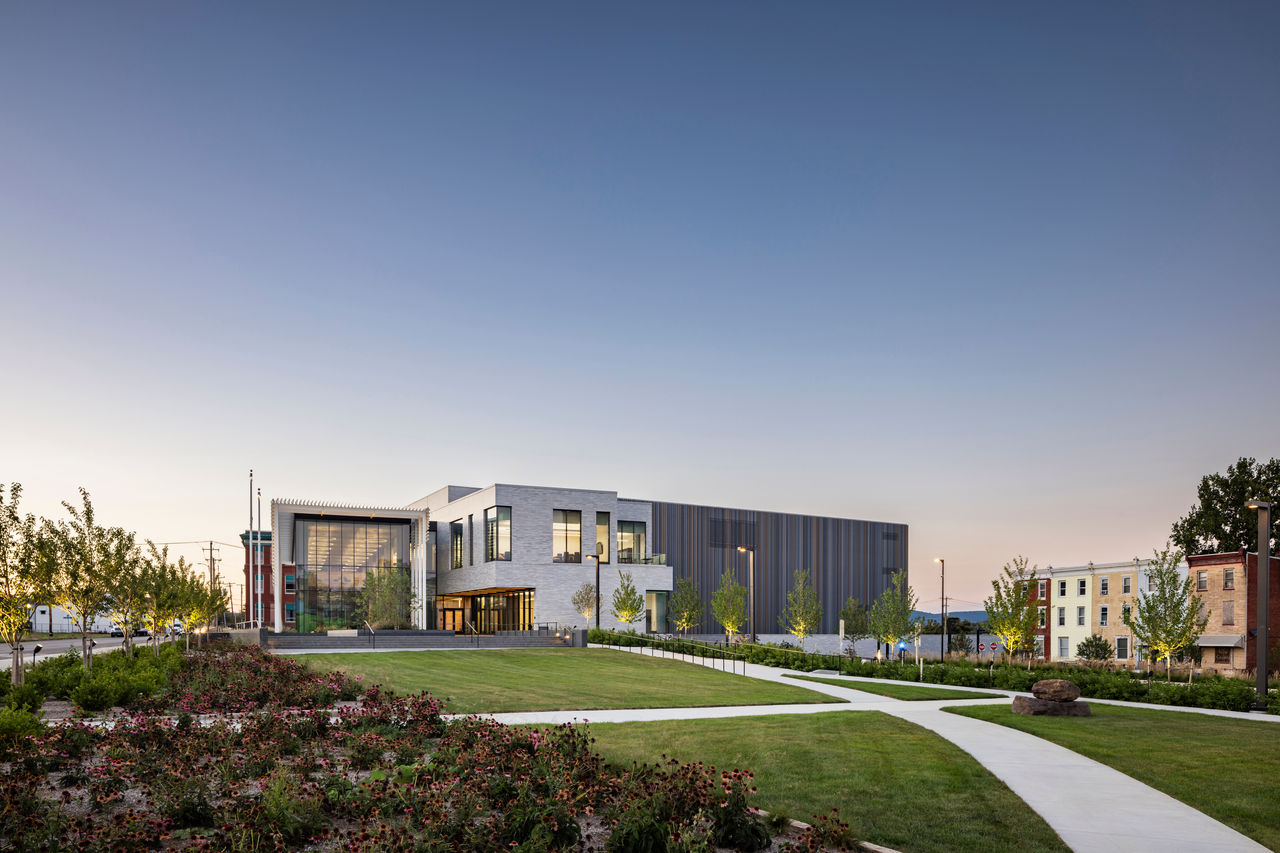
Related Stories
| Mar 17, 2014
Rem Koolhaas explains China's plans for its 'ghost cities'
China's goal, according to Koolhaas, is to de-incentivize migration into already overcrowded cities.
| Mar 12, 2014
14 new ideas for doors and door hardware
From a high-tech classroom lockdown system to an impact-resistant wide-stile door line, BD+C editors present a collection of door and door hardware innovations.
| Feb 27, 2014
Open or private offices? It depends on the business plan
Open layouts are grabbing headlines as a hallmark of the new workplace—think the Google campus or Facebook's headquarters. And for smaller-scale operations, open designs are often lauded for being less expensive than private office plans. But does that mean all offices should have an open layout?
| Feb 21, 2014
Calatrava ordered to pay millions for 'shortcomings in his work' on conference center project
Famed architect Santiago Calatrava must pay 2.9 million euros due to faulty design work on the Palacio de Congresos project in Oviedo, Spain.
| Feb 14, 2014
Crowdsourced Placemaking: How people will help shape architecture
The rise of mobile devices and social media, coupled with the use of advanced survey tools and interactive mapping apps, has created a powerful conduit through which Building Teams can capture real-time data on the public. For the first time, the masses can have a real say in how the built environment around them is formed—that is, if Building Teams are willing to listen.
| Feb 12, 2014
First Look: Futuristic Silicon Valley campus designed to draw tech startups
The curved campus will consist of four different buildings, one exclusively for amenities like a coffee bar, bike shop, and bank.
| Feb 6, 2014
End of the open workplace?
If you’ve been following news about workplace design in the popular media, you might believe that the open workplace has run its course. While there’s no shortage of bad open-plan workplaces, there are two big flaws with the now common claim that openness is bad.
| Jan 30, 2014
The evolving workplace: One designer's inspiration board
"Open office" has been a major buzzword for decades, and like any buzzword, some of the novelty has worn off. I don't believe we will abandon the open office, but I do think we need to focus on providing a dynamic mix of open and closed spaces.
| Jan 28, 2014
2014 predictions for skyscraper construction: More twisting towers, mega-tall projects, and 'superslim' designs
Experts from the Council on Tall Buildings and Urban Habitat release their 2014 construction forecast for the worldwide high-rise industry.
| Jan 28, 2014
16 awe-inspiring interior designs from around the world [slideshow]
The International Interior Design Association released the winners of its 4th Annual Global Excellence Awards. Here's a recap of the winning projects.


